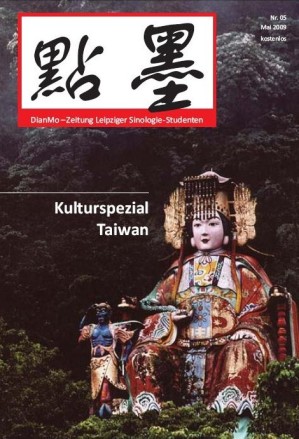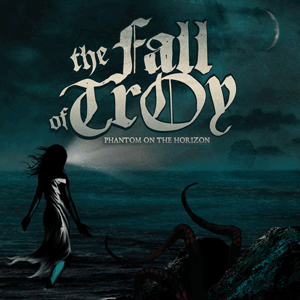Let Taiwan serve as a two-fold case in point for my argument, which is to say that there is a very frightening component about Chinese Han Ethnocentrism, something masquerading as "cultural" which is very hard to distinguish from other areas such as politics and ethnicity.
By referring to two layers, I mean looking at Taiwan from an micro and a macro level angle. The macro level is rather easy to describe, since it entails the way the Chinese empire spread through the course of many centuries, incorporating colonized local people and by way of proving its "cultural" superiority convincing most ethnic groups to submit to and overtake Chinese culture. This is especially true today, when life becomes ever faster, information can be accessed almost everywhere, and there is fierce competition for job opportunities with an widening gap of the haves vs. the not-haves. This means as long as there is no real appreciation for any non-Chinese culture and multicultural diversity within the so-called ethnic Chinese group, people with a distinct culture have to get rid of some of their cultural traits, especially those that might potentially clash with Chinese custom and behaviour.
I am to this day convinced that there is no genuine appreciation of foreignness in China. In part this is due to an overaggressive nationalism which was launched in the beginning of the 20th century to confront Western invasion into China, and at the same time was a reaction to what was felt necessary at the time: the building of a strong nation state to compete with other nations. Along with a nation state, the concept of "race" was prevalent at that time and in a process of westernization (as means to self-strengthening, without losing cultural roots) seemingly had to be introduced or at least, if already existing, modified in China. Keeping traditional cultural roots didn't stay at the political agenda of the most successful movements for long. The Communist regime stands for breaking ties with most fundamental traditional Chinese idea(l)s, especially those relating to society and social relationships. However, it was constantly felt necessary to strengthen a certain nationalist awareness, which after the end of the possibility of Communist legitimation took over as one of the two foundations of the modern Chinese nation state, the other being economic prosperity. In combination they aim for China becoming the world's foremost economic power. This ideology necessarily has a couple of dogmas that cannot be touched, among them the triple 'T' (Tibet, Taiwan, Tian'anmen), which cause a lot of harm in and around China and should be examined critically. Excuses centering on China's exotic nature ("Maybe the Chinese are like that") are not of any help here, because the root of the problem is not genuinely Chinese but rather imported - it lies in the concepts of nationalism and capitalist economy. Current Chinese society is in these aspects very far from what traditional China may have looked like. My criticism as such is thus not aimed at something inherently "Chinese", but on nowadays implementations and importations of essentially Western ideas. I actually would very much like China to be more "Chinese", as I think this ongoing marriage with some mutilated currents of Western thought is a very dangerous one. Realistically, I am not hoping for many Chinese people to accept this criticism, something that may be due to national pride having already taken deep roots in most of the population. What I myself cannot accept, however, is that innocent people in a country separate from China should suffer from dogma-infested actions deriving from this misguided interpretation of outdated Western concepts.
The funny and really scary thing about Chinese ethnocentrism is that in cooperation with the Chinese language that doesn't favour definite word-meaning relationships it can quite easily clothe its appearance in more pleasant phrases such as "cultural Chineseness" (which, apparently, is aimed to include all "cultural" Chinese from overseas - Singapore, USA, Indonesia - in the great Chinese community whose representative is, of course, the People's Republic - there is even a word for this that bridges the gap between ethnicity, politics, and culture: 華人世界). This does amazingly often work with Western scholars and politicians who take Chinese phrases (designed to be foremost pleasant to hear) for their concrete meaning, mostly without having the time to cast a critical look on how those phrases relate to reality.
To me, if an ethnic group (however wildly constructed this "ethnicity" may be) separates itself as clearly as is the case with Chinese "cultural" ambitions, which at closer look reveal quite direct imperialist intentions, anti-Chinese sentiment in these places is quite a natural thing to expect. As is the case in Taiwan. Taiwanese "ethnic" identity is clearly constructed against and under the threat of Chinese ambitions to take over the island of Formosa. If there were no political pressure on Taiwan, the formation of Taiwanese identities would not have to be directed against China, but it could more naturally evolve as some sort of post-nationalist citizen- and democracy-based identity which is much needed indeed, if we are to confront Taiwan's current and future problems in society and human-nature relations effectively.
At the centre of the problem may well lie the question: What on earth are ethnic Han? - As a friend of mine put it once, the "Han" are a wild mix of different peoples, quite naturally so if one considers traditional Chinese political and cultural concepts (i.e. the imperial claim to represent everything under heaven, of course every cultural group can become part of "everything under heaven"). This makes the "Han" distinction itself more a cultural one than an ethnic one. "Friendly takeover" has happened before, many of the people now considered "Han" were "barbarians" a few centuries ago - I have a hard time believing that the "Han" may be supposed to just be much more effective in out-populating so many peoples. The modern Han race is settled on ideology and mythology, with history serving as its primary legitimation (the "5000 years of Chinese culture"), at the same time "Han" is essentially a synonym for "Chinese" today, representing about 93% of the PRC population, which is pretty convenient in legitimating China's sole representation by "Han" politicians. Some hint in how arbitrarily the "Chinese race" has been constructed can be found in comparing differences between Han and "Manchu", who are officially recognized as a minority, that is, not "Han", and differences between inner-Han groups with their own language etc. (for instance, Hakka, Hoklo, Cantonese). (On another note this may tell us a lot with Chinese preoccupation with the Northern part of the country, whilst the South has always been thought of as populated by uncivilized barbarians.)
All I want to say is that I question the Han qualifying as a single ethnic group that can be used by serious scholarship. As long as there is no genetic evidence, I keep on doubting. It appears to me that the construction process serves very real political purposes. A politically manipulated term, however, can not be mingled with independent science.
Then there is what I called the "micro level" of Han ethnocentrism.
Again, taking Taiwan as an example, on one hand the island is the concrete aim of Chinese cultural-imperialist ambitions (macro level). On the other hand, there is Han ethnocentrism within Taiwan. Although cultural diversity is recognised in Taiwan by distinguishing four different groups (Aboriginals, Hoklo, Hakka, Mainlanders), there is considerable cloudiness to how distinct the groups are. For instance, a big part of the Hoklo-"Taiwanese" are comprised of Hoklo-Hakka and former flatland aboriginals marriages. The only group easily distinguishable are the mainlanders retreating with Chiang Kaishek in 1949, although intermarriage with Taiwanese Hoklo or wives from overseas are common, so that lines get blurred. Talking more specifically about "ethnicity", it seems that all groups are taken together as "ethnic Chinese" (= Han), the only outside group being Taiwans "First Nations", the austronesian aborignals.
Let's continue this further. The Austronesians have been subdued by the influx and weapon-technological advance of immigrants from China to the point of marginalisation. Until very recently, the "ethnically Chinese" people have never doubted their superiority to the aboriginals in any aspect. This is why they took their land and resettled them in concrete buildings without bothering to ask for the politically inferior groups opinion. As Fiorella Allio, engaged French anthopologist among the Yami tribe, tells that the Yami on the Taiwanese island Botel Tobago has been resettled, and their traditional fishing grounds have become a nuclear waste deposit site. How much more disrespectful can you be in dealing with other people? All of this is reflected in the way Taiwanese politicians treat the land - there has been no consideration about a policy's effects on the natural environment (ideological reasons for Chinese indifference towards the land - for many decades, most officials have been mainlanders - can be found elsewhere - Taiwan has always been considered a tropical backwater of no use to Chinese officials. Interestingly, this has changed significantly over the past years, but to a bigger degree for mainland China than for local politicians, I fear). Still, the Aboriginals today may be welcome folklore to many Taiwanese, but they are not really an integrated part of society. They have lower incomes and education levels, higher mortgage and unemployment rates, are prone to become alcoholic, and even the tribes living next door are often separated from "Han" society and driven further out as settlement patterns spread. Settlement spreads, but not to include them, but drive them further away. Professor Hsia Chu-joe 夏鑄九 (National Taiwan University, Graduate Institute of Building and Planning) whom I heard give a talk on the planned new law on the Management of State Property Land at the NGO House in Taipei a few weeks ago put it in these terms: "When are the Han ever going to accept the Aboriginals as people just like themselves? When are they going to accept anybody outside themselves?
Chinese Han ethnocentrism from China, as relating to Taiwan, is manifested in that it does not take into account the Taiwanese people's opinion regarding the future and status of their island which is a country independent from China. We might perceive this nationalist ethnocentrism as sort of outsider-friendly (even for hardline unificationists there must be some sense of Taiwan being different from China, since otherwise there wouldn't be need for such a thing as "unification") and dogmatic. Taiwan has to be kept from declaring official independence to uphold the mythological foundation of the Chinese nation state. This is a very aggressive view on cross-straits relations, especially for its denying Taiwan to make use of the basic international right for self-determination by threatening it to use violence. The only solution to this problem is either China giving up its territorial claims on Taiwan (not likely to happen), or the Taiwanese people giving in to a mixture of international pressure and economic promises (much more likely to happen). From a moral point of departure, the lack of Western support for democratic Taiwan is of great concern to me. This undermines Western democracies moral authority even further, since we are essentially buying into authoritarian China's promise of a great economic market, and selling out democratic kin in return... Apparently, 2012 is the year to look out for. If we are lucky, the world will be ending that year anyway.
For all that is good, and if a society really wants to progress, it has to look beyond the confines of its own cultural and ethnic boundaries. It has to learn to position itself in the place of any other culture that it is facing. This is the only way to enhance mutual understanding and avert competition that might lead to subordination of one people under the other. I consider this an essentially globalised human desire, because it will be the only way to the traditional Chinese ideal of "harmony" 和諧 within society, in the relations with other societies, and in dealing with the environment. To give these thoughts some additional weight, let me quote famous anthropologist Clifford Geertz:
"the primary question for any cultural institution anywhere, now that nobody is leaving anybody else alone and isn´t ever again going to, is not whether everything is going to come seamlessly together, or whether, contrariwise, we are all going to persist in our separate prejudices. It is whether human beings are going to be able, in Java or Connecticut, through law, anthropology, or anything, to imagine principled lives they can practically lead [together]."









